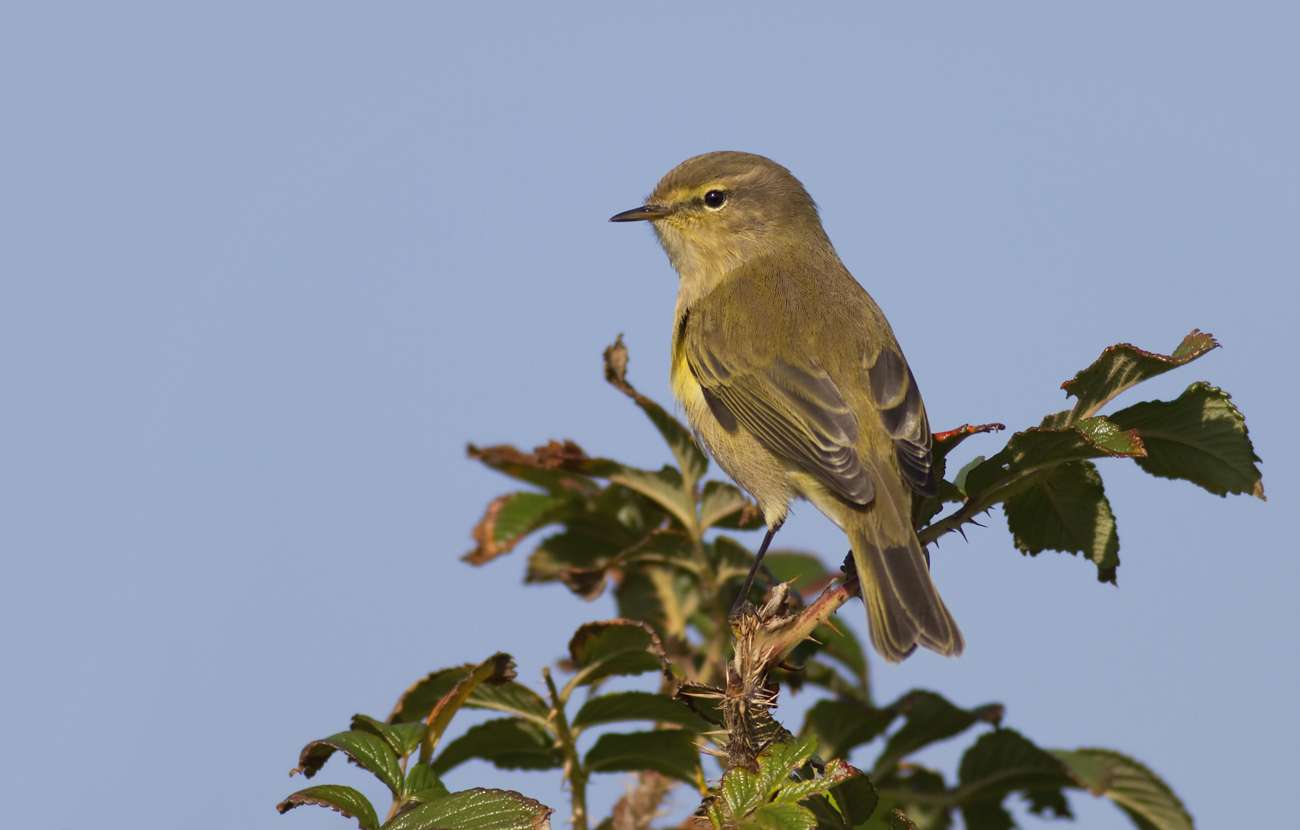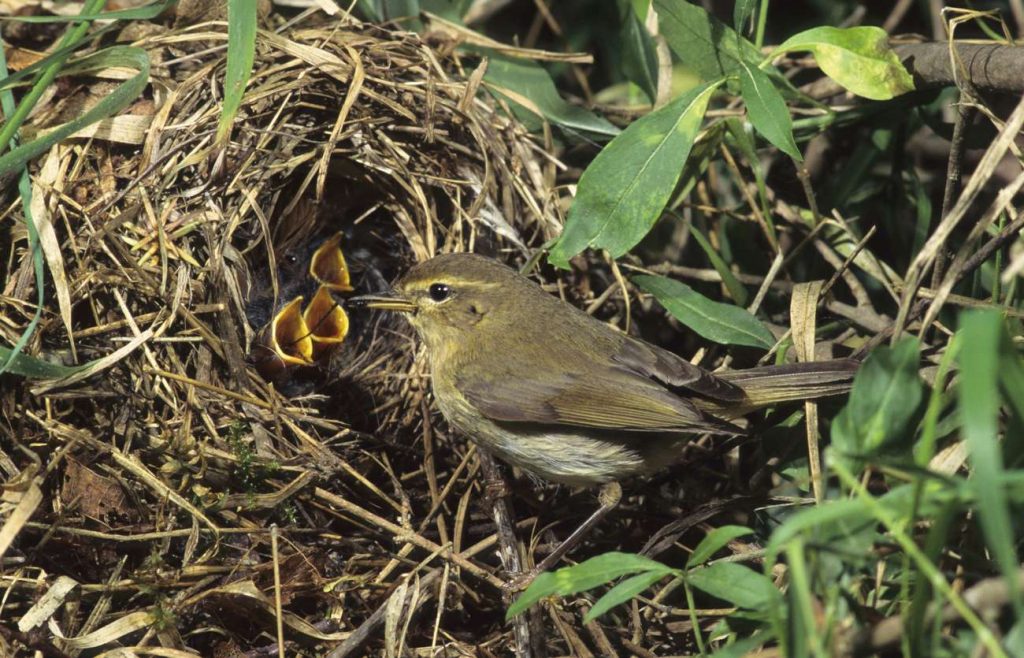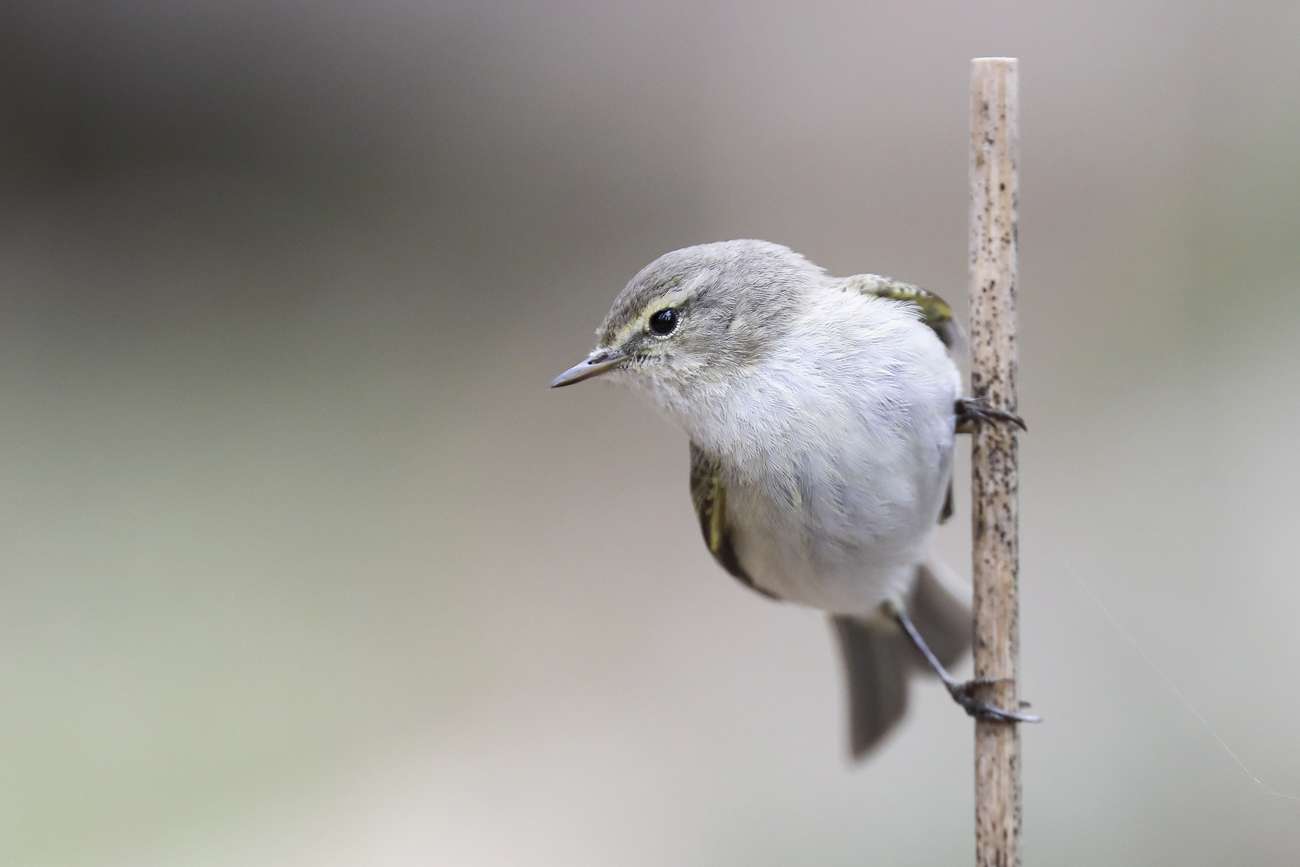
Chiffchaff (Phylloscopus collybita)
As the leaves fall and the changing season’s reds, oranges and gold emerge around us I am keeping my eyes peeled for some tiny busy visitors.
They always pop in at this time of the year and will be stopping off in our gardens over the next few weeks to feed up before moving on to their traditional wintering grounds in southern Europe and north and west Africa.
There goes one now, whizzing low across the garden into a hawthorn bush. Soon it emerges from the edges and flies out in a brief acrobatic foray.
It springs up a few feet vertically to snatch a small insect it has disturbed and then dives back headfirst into the foliage. No time to rest – it shoots out on the horizontal, snaps up another morsel, and heads off to the plum tree.
From there it launches out and hovers briefly to grab small flies around the remaining rotting fruit.
Briefly it poses on an outside branch and utters its unmistakable one syllable contact call: ‘sweett.’ Others say it is more like ‘wheet’. It is a Chiffchaff, these days officially referred to as the Common Chiffchaff to differentiate it from other relatives. And I’m chuffed to see it.
At only 0.29 ounces it punches above its weight for interest value. Always on the go, individual birds may vary in the detail of their greenish-brown upperparts and yellow washed underparts. And they frequently hunt with a variety of other small birds including – if you are lucky – a scarce of rare species.

Chiffchaff at the nest (Phylloscopus collybita)
They are usually our first summer migrant to be found, giving the heart a lift even on bitterly cold days as they remind us that another spring will be back again, just like they are.
Birds arrive in the first week of March, or just after, then en masse from the last week. Many pass unobtrusively through our gardens for a quick snack.
Invariably their song draws first attention to them – a repetitive ‘chiffchaff, chiffchaff, chiffchaff’ coming from somewhere in the trees. The music from this ground nester continues far longer than many other species and sees us right through to summer’s end in our local woodlands where they can be commonly heard.
This month many of them are needing to build up fat reserves for a journey that could take them over the Sahara. Perhaps they know there is not far to go now before they have a sea crossing to contend with. So here we have them.
Our local numbers have been swelled by others from further afield and they are all around the Surrey Hills area right now, doing their bit to erase those darned pests from our foliage.
This passage south was first evident to me on 26 July this year when one visited my garden briefly. There has been a steady build up since, with some present over several days. But of course the Chiffchaff you see today may easily be another bird from the one behaving in the same way at the same spot yesterday.
All this activity could go on for many weeks more, depending on the weather and other factors. I have seen them as late as 17 November in the garden.

Chiffchaff (Phylloscopus collybita)
Some Chiffchaffs have, like the Blackcap in more recent times, decided not to migrate at all and have taken to overwintering, especially around fly rich areas such as our local Unstead Sewage Farm.
Changing climate patterns could give us more sightings in winter but I have only had one winter record in Cranleigh so far, on 29 January 2016.
This black-legged warbler – beware confusion with the much scarcer but similar and generally paler-legged Willow Warbler – is one of the large ‘Phylloscopus’ family. The name comes from the Greek, phullon – a leaf – and skopos, a watcher.
Now we know why they watch leaves so avidly. But I find the remainder of their scientific name, collybita, a bit of a misnomer. It apparently comes from the Latin collybista and the Greek kollubistes, meaning moneychanger.
This is due to the Chiffchaff’s song. Really? According to those who conjured the name up it sounds like coins being counted as they are dropped on top of one another. Maybe they had hearing problems.
To my ears the cash tag much better fits the Bearded Tit, more recently re-named as the Bearded Reedling. Its ‘ping’ call, usefully betraying its exact presence in vast reedbed habitat, is like the sound of a coin being flicked in the air.
And if you hear one of those locally please contact me via Cranleigh Magazine or on Twitter immediately. There has never been one recorded in the village yet!
Twitter – @Crane_Spotter
Click here to see all of Robin Stride’s previous Crane Spotters.











